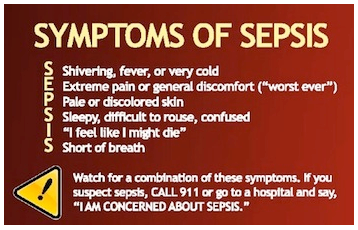- Privacy Policy
- Terms & Conditions
- Contact us
- ©Isabel Healthcare 2020
Symptom: Rectal Bleeding - Isabel Healthcare
Rectal bleeding, also known as hematochezia, blood in the stool or bleeding from the bottom, is often seen as small amounts of bright-red blood on toilet paper or sometimes as some blood droplets turning the toiler water pink. Bright red blood represents that the bleeding has come from somewhere near the anus and often occurs with defecation. If the blood is darker in colour and sticky then this may represent bleeding has occurred higher up the digestive tract. This type of bleeding can turn your faeces black or plum-coloured which is known as melena.
Causes of Rectal bleeding:
In a middle aged male experiencing rectal bleeding the following problems should be considered in partnership with a medical professional to decide on what the cause of action should be:

Rectal bleeding possible causes – Isabel Symptom Checker
Piles / Hemorrhoids
Painless bright red rectal bleeding when passing stool can indicate haemorrhoids are present. Hemorrhoids in their normal state are cushions present in the anal canal which help with stool control. These can become inflamed, although the cause is unknown. They can occur internally and externally and they tend to occur in people who have increased pressure in their abdomen, resulting from conditions such as constipation, diarrhea, obesity and pregnancy. Hemorrhoids should resolve by themselves but any cause of rectal bleeding should be investigated to rule out a more serious condition.
Crohn’s Disease
This can present with blood in the stool as well as other symptoms including diarrhea, fever, weight loss, abdominal pain and cramping. The cause of Crohn’s disease is unknown but may occur anywhere in the entire gastrointestinal system. It manifests as inflammation, causing the symptoms mentioned. People who have Crohn’s disease can go for long periods without having any symptoms (remission) and then have a flare up of their disease. Currently there is no treatment for Crohn’s disease, but the aim of treatment is to alleviate symptoms and induce remission.
Food allergy
Rectal bleeding due to a food allergy occurs when the body’s immune system goes into overdrive after eating a food substance which triggers an allergic reaction. Food allergies can result from milk, eggs, peanuts, wheat and shellfish. They are more common in children than adults, and tend to occur in atopic individuals who already have an inherited tendency to allergic conditions like asthma and atopic dermatitis. Symptoms of food allergy include rectal bleeding, stomach cramps, nausea, vomiting, diarrhea and itching in the mouth and throat.
Peptic ulcer
An ulcer in the stomach lining may erode through a blood vessel, causing bleeding which, in turn, may manifest as rectal bleeding. Peptic ulcers can be caused by other medication, and also by a bacteria known as Helicobacter pylori. Symptoms include a burning sensation between the chest and abdomen, which can be intense when the stomach is empty, as well as weight loss, nausea, vomiting, acid reflux and abdominal bloating.
Bowel cancer (Colorectal cancer)
This can occur in the colon or in the rectum, which together make up the bowel. The bowel walls are constructed of several layers of body tissues. The condition usually starts in the inner lining of the bowel, often as a small growth called a polyp or adenoma. If left untreated they may become cancerous and grow through the bowel wall. Symptoms include rectal bleeding, a lump in the rectum, weight loss and abdominal or rectal pain.
When is rectal bleeding an emergency and what are the next steps to be taken?
Seek emergency help if you have rectal bleeding and any signs of shock which include rapid, shallow breathing, dizziness, blurred vision, fainting, confusion, nausea, cold pale skin or low urine output. Likewise, if the rectal bleeding is continuous or heavy, accompanied by severe abdominal pain or anal pain then seek immediate medical attention.If you have minor rectal bleeding which lasts longer than a day or two, or can feel other symptoms like a rectal lump, then you should consult your doctor. Before your consultation with you doctor, think about the following questions they may ask you:
- Describe your rectal bleeding. How long have you had the rectal bleeding? What colour is the rectal bleeding? Is it bright red, dark brown or black?
- When does the bleeding occur and how often? During passing a stool or unrelated to a bowel movement?
- Have you any other symptoms as well as the rectal bleeding including fever, abdominal pain or weight loss?
- Have you had any injury or trauma to the rectal area?
- Are you taking any medications?
Use the Isabel Symptom Checker to check your symptoms before consulting with your doctor:

Mandy Tomlinson
Mandy has worked for Isabel Healthcare since 2000. Prior to this, she was a Senior Staff Nurse on the Pediatric Infectious disease ward and high dependency unit at one of London's top hospitals, St Mary’s in Paddington which is part of Imperial College Healthcare NHS Trust. Her experience in the healthcare industry for the past 28 years in both the UK and USA means she's a vital resource for our organization. Mandy currently lives and works in Scottsdale, Arizona.
Subscribe Here!
Recent Posts
Virtual Triage: Do more questions lead to better patient outcomes?
One of the common misconceptions related to virtual triage / symptom checker tools is that the more..Webinar: Using Virtual Triage To Transform Patient Access
Outdated contact centers are posing problems for today's health systems. As longer hold times..List Of Categories
- Differential Diagnosis Decision Support
- Differential diagnosis
- Symptom Checker
- Symptoms
- Medical Error
- Patient Disease Information
- Disease
- Diagnostic Decision Support
- Clinical Decision Support
- Isabel 1 Minute Read
- Diagnosis Error
- Diagnosis Skills Cases
- Healthcare Informatics
- Medical Education
- Patient Engagement
- Clinical Reasoning
- Evidence-based Medicine
- Symptom Triage
- Nurse Practitioner Education
- Nursing Decision Support
- Partnership
- Public Health
- COVID-19
- EHR
- Patient Empowerment
- Patient Safety
- rare disease

Start your FREE Trial today
Try the Isabel Pro DDx generator for 30-days - no payment card details required.




